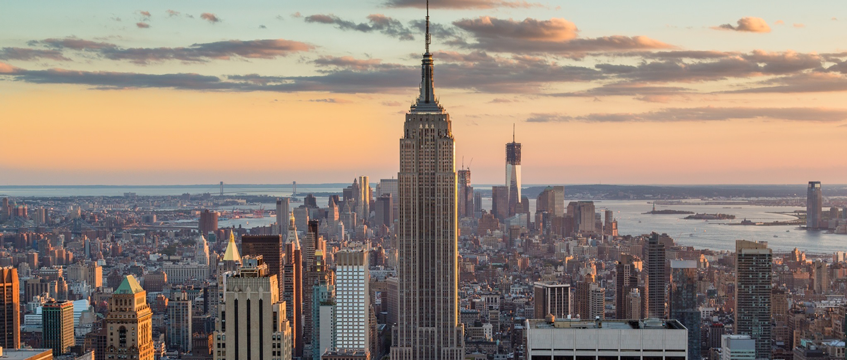COMMENT “I don’t think they’re gonna make it,” I said as I walked back into the apartment. My wife could not believe it. “You must be overreacting. Did you actually speak to her?”
“Yes,” I replied, “she said this might be the last one for a while.” I put the pizza on the counter and took off my coat. My wife opened the cardboard lid and looked at the beautiful Neapolitan pie. “Thank you for picking it up,” she said. “Who knows if they’ll open again once this virus is behind us.”
Before moving to New York, I spent a decade in Beijing. Over the past two months, I’ve been watching China’s slow – and then fast – response to Covid-19 through the social feeds of old colleagues and friends. My wife has lived in New York all her life. For weeks, I’ve been trying to scare her with the stories I heard from China. But it was not enough to prepare her – or me – for life without our favourite pizza. And they say it’s going to get worse.
Shut down
I do not mean to make light of Covid-19’s threat; it is real. It is also surreal. New Yorkers go through life assuming that everything they’ll ever need is available within walking distance. Suddenly, it isn’t. Under our building, people stand in line to enter Trader Joe’s, perhaps the city’s favourite “grocer”. The store is regulating the flow of shoppers to keep customers and employees safe. Online, it is virtually impossible to schedule a delivery from Amazon’s Whole Foods Market.
Covid-19 is trying to expedite the arrival of a delivery-centric future, but the present is struggling to catch up. Despite incentives from meal delivery companies such as Seamless and Uber Eats, many restaurants are shutting down until further notice. The dishes at most upscale establishments were not designed to be ferried around on a bicycle. Local eateries that are more accustomed to deliveries are struggling to survive without any dine-in customers.
Meanwhile, it is becoming harder for New York’s 160,000 or so restaurant employees to get to work. On Monday night, the website for the city’s unemployment benefits crashed due to a surge in visitors. “Cloud kitchens” that were designed to handle deliveries have an opportunity to expand their market share. At the same time, who needs a dedicated facility when most traditional restaurants are also becoming delivery-only?
Apple, Nike, Zara, Ulta, Saks Fifth Avenue, and dozens of other retailers have shut down their stores. Neil Saunders, managing director of GlobalData Retail, estimates that nearly 15,000 stores have closed across the US as of Tuesday, representing 230m square feet. Many of those who stayed open — including giants such as Walmart and Target — do so in order to support basic needs.
Remote working
Those who can, work from home. But home ain’t what it used to be. High-end condominium and rental buildings are shutting down playrooms, gyms, and other shared amenities. Some are even instructing tenants on how to operate some of the building’s systems and procedures, in case key employees are forced to stay home. The housing market is frozen, with most sellers unwilling to accept visitors, and most buyers uncomfortable making the biggest financial decision of their life under extreme uncertainty. More experienced investors are waiting for things to get worse before they make a move.
Technology companies were first to encourage their employees to work remotely. Within a few days, the government instructed everyone else to follow suit. Many industries are getting their first taste of location independence. Financial transactions that are normally handled in fully equipped exchanges are moving to laptops and homes, as regulators have no choice but to ease age-old requirements. The bankruptcy proceedings of PG&E, a failed energy giant, are being handled over the phone, instead of in person, in court. And the Wall Street Journal just published its first-ever edition written by an entirely remote newsroom.
The virus is also expediting the adoption of new ways to socialise. I recently joined Not Boring, a club for “people who want to try new and exciting things together IRL” (in real life). Contrary to its original mission, the club is conducting daily video lunches. Members can chat and exchange book recommendations and career advice, or give a talk about their area of expertise. Elsewhere, those seeking more passive enjoyments can install “Netflix Party”, a browser extension that enables multiple friends to watch the same show and chat about it in a dedicated window.
It’s barely been a week, and I am already tired of the cloud. Will I ever go back to the office? I don’t know. But I’ll definitely go back to that Italian restaurant. May it be soon!
Dror Poleg is co-chair of the Urban Land Institute’s Technology and Innovation Council in New York and author of Rethinking Real Estate











